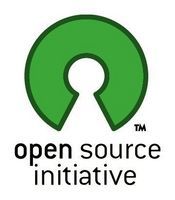New Web Domain Names: Should You Pass?
Plenty of organizations remain in the dark about the flood of new Internet addresses about to become available later this year. Here's what you need to know.


9 Bargain IT Tools For SMBs
9 Bargain IT Tools For SMBs (click image for larger view and for slideshow)
Web addresses ending in extensions such as .accountant or .pizza will soon join the online world where .com has long been the sought-after destination. Yet the majority of small and midsize businesses (SMBs) still have no idea the new real estate is about to hit the market.
The Internet Corporation for Assigned Numbers and Names (ICANN) received nearly 2,000 applications when it opened the doors for new generic top-level domains (gTLDs) last year. A gTLD is the string of characters "to the right of the dot" in Internet domain names, such as .com or .org.
Mega-brands like Apple and Google were among the large enterprises that bid to own and govern extensions like .apple and .google. (Google, for one, applied for more than 100 gTLDs.) Domain marketplaces like Donuts.co, on the other hand, focused on the "generic" in gTLD. Donuts.co applied for extensions like .architect and .restaurant with plans to sell the corresponding URLs at retail, as the likes of GoDaddy or 1&1 do with the 22 widely available gTLDs. The new extensions are set to start going on sale later this year.
[ Are you staying on top of tech trends? Read 7 SMB Technology Predictions For 2013. ]
Nearly two-thirds of small businesses, though, have no idea the new extensions are coming, according to a recent survey by domain vendor Sedo. The poll included roughly 600 small business owners and managers, and 94% of them said they currently had no plans to purchase a new gTLD for their company.
Those SMBs stand to get squeezed out of the next Internet land grab. While a .com URL might remain the desirable address for the foreseeable future, the massive increase in potential domain names could create a variety of brand and trademark infringement headaches for businesses.
"Because 1,000 new gTLDs will be released annually, trademark owners face new challenges to their brands as the unscrupulous seek to register their brands to the left of the dot of the new gTLDs," said attorney Jeanne Hamburg of Norris McLaughlin & Marcus in an email to InformationWeek. Hamburg chairs the firm's Internet law group. "For example, generalmotors.manufacturing would infringe GM's rights in its brand by including the GM brand to the left of the dot in the new gTLD .manufacturing."
Hamburg advised that brand owners submit their registered trademarks to ICANN's Trademark Clearinghouse, the organization's program for dealing with infringement issues when new gTLDs are made available for sale. Hamburg noted that, for a fee of up to $150, registrants will be notified any time someone buys a URL that potentially infringes on their trademark "to the left of the dot" during the first 60 days the gTLD is available. The clearinghouse opens on March 26; ICANN calls it "the one-stop shop for protecting your brand in the new gTLD era."
Of course, not every company possesses GM's stature. Hamburg said SMBs will have to decide whether it's worth registering with the ICANN clearinghouse based on their past experiences with brand enforcement on the Web. "I do note that trademark infringements need not be willful," she said. "[We] frequently have small business clients who ask us to assist in pressing claims against others who have unwittingly infringed their rights."

Windows 8: 8 Big Benefits For SMBs
Windows 8: 8 Big Benefits For SMBs(click image for larger view and for slideshow)
The clearinghouse mechanism, though, requires SMBs to be aware of the changes in the first place -- and that's far from a given. Take Hobart Swan, head of the PR agency Vocalize PR. "I hadn't a clue" of the new domain names, Swan said in an email to InformationWeek. "This should be interesting as it is hard enough to get people to your site without worrying about whether they've entered a) the correct spelling of your domain name, b) the correct extension and c) the correct spelling of the correct extension."
As a result, Swan said he's unlikely to buy, say, vocalizepr.agency -- one of the applied-for strings -- because of the potential for confusion among clients.
Some SMBs are aware of the new domain names; they simply aren't going to buy them. "The way we see it, all these new domain names will simply be money sinks," said Ian Aronovich, president and co-founder of GovernmentAuctions.org, in an email to InformationWeek. "Not only will everything be much more confusing for domain owners, but also online visitors who will have to remember whether sites end in .com, .org, .net, .info, .accountant, .movies, .lawyer, .doctor, .diapers or something else."
[ Thinking about buying some new hardware? Read Microsoft Surface Pro: Why 2 SMBs Say Yes. ]
Therein lies a potential silver lining for SMBs who ignore the new domains. Their customers might ignore them, too.
"Our research shows a majority of consumers are unaware that these changes are coming," a recent report by registry and DNS provider Afilias noted. "And once users hear about them, they would likely avoid the new extensions due to their unfamiliarity."
Just 22% of U.S. adults had heard of the new domains, according to the report, and 58% said they wouldn't visit a website with an extension they didn't recognize. In other words: the large enterprises and domain-name vendors that shelled out $185,000 a pop to apply for new extensions still have a lot of work ahead of them to get people to actually type those URLs into their Web browsers.
"Old habits die hard. [Our] research shows consumer are currently reluctant to experiment with new TLDs," the Afilias report reads. (Afilias should know: the company launched with the .info domain registry in 2001.) "Confidence in 'heritage' domains has been built over many years and dot brands have tough shoes to fill."
Read more about:
2013About the Author(s)
You May Also Like
How to Amplify DevOps with DevSecOps
May 22, 2024Generative AI: Use Cases and Risks in 2024
May 29, 2024Smart Service Management
June 4, 2024







